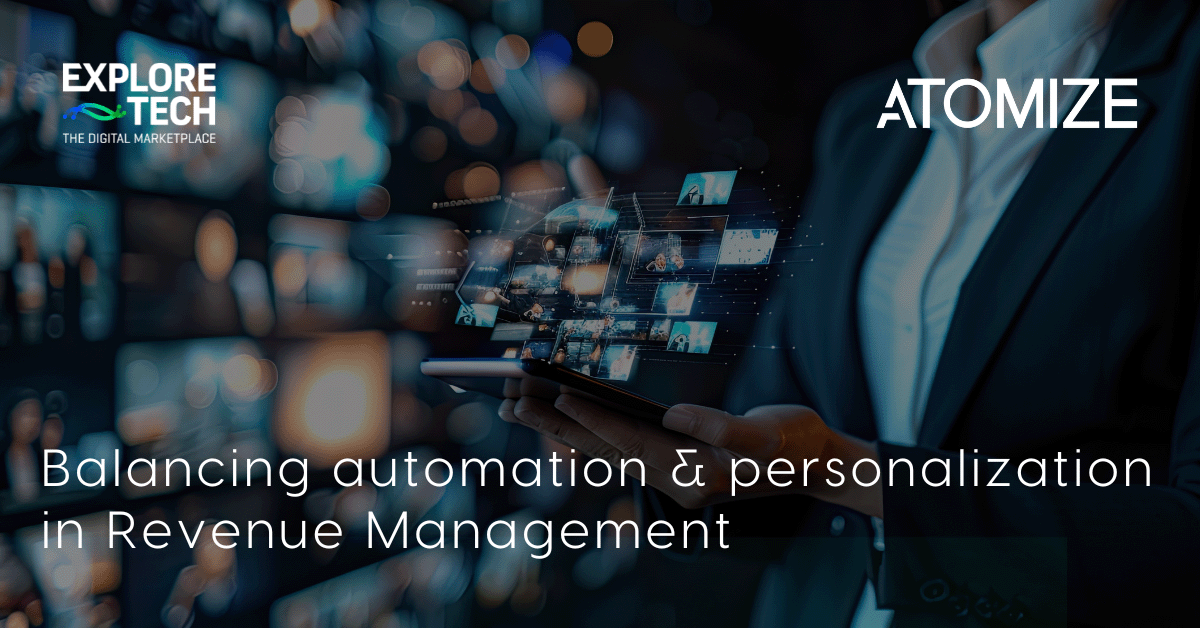In today’s fast-paced hospitality industry, technology is not just a tool—it's a game changer. One of the most exciting innovations is the use of Revenue Management Systems (RMS) that blend automation with personalization. But how can hotels leverage this technology to streamline operations while still delivering that essential personal touch?
In this article, featuring expert insights from Atomize CEO, Alexander Edström, we will explore how the integration of contactless technologies in RMS is paving the way for seamless automation while preserving the personalized touch that attracts and retains guests. Through best practices and real-world examples, we’ll examine how hotels can optimize revenue without compromising guest satisfaction.
The Power of Automation in Revenue Management
Imagine having a tool that automatically adjusts your hotel’s pricing in real-time based on market demand, booking patterns, and competitive pricing—all without lifting a finger. That’s what advanced RMS platforms like Atomize offer. These systems leverage AI and machine learning to analyze vast amounts of data, optimizing prices across all distribution channels instantly.
Edström emphasizes the impact of this technological leap: “Automation in revenue management is not just about optimizing prices—it’s about allowing hoteliers to focus on what truly matters: creating exceptional guest experiences. By letting RMS handle the routine tasks, hotels can channel their energy into delivering personalized service that makes a difference.”
This automation not only makes revenue management more efficient but also frees up valuable time for hotel staff to focus on strategic decision-making. By removing the manual labor involved in adjusting prices, RMS platforms ensure that rates are always aligned with market conditions and competitive pressures.
However, as effective as automation is, maintaining a personalized guest experience remains crucial. Today's travelers expect more than just a room; they want experiences tailored to their individual preferences and needs. So, how can hotels strike the right balance between efficient automation and personalized service?
Merging Automation with Personalization
Here’s the secret sauce: using data insights from your RMS to enhance guest experiences. Edström notes that advanced RMS platforms don’t just automate pricing; they also provide valuable data that helps you understand your guests better. This means you can create tailored offers, recognize repeat guests, and even provide special discounts based on specific guest profiles. Let’s break down how to get this balance just right:
Leverage Data for Personalization: Automation should complement, not replace, the personal touch. Use the data from your PMS and RMS to craft offers that cater to different guest segments. For instance, you might design a special package for loyal customers or offer targeted discounts for guests from particular regions. This approach ensures your guests feel valued and appreciated.
Keep a Close Eye on Performance: Even with automation, it’s essential to regularly review and adjust your strategies. RMS platforms allow for flexibility, so you can tweak parameters and set overrides as needed to ensure that your pricing aligns with your brand and guest expectations. Regular performance monitoring helps maintain the right balance between automation and personalization.
Communicate Transparently: Dynamic pricing can sometimes be confusing for guests. Being open about how prices are determined helps build trust. Clearly communicate the reasons behind price fluctuations to your guests, so they understand the value they’re receiving. Transparency in pricing not only fosters trust but also reinforces the perceived fairness of your rates.
Focus on Enhancing the Guest Experience: The goal of automation is to improve efficiency, not to detract from the guest experience. By automating routine tasks, you free up staff to focus on delivering personalized service. This means your team can spend more time engaging with guests, addressing their needs, and creating memorable experiences.
